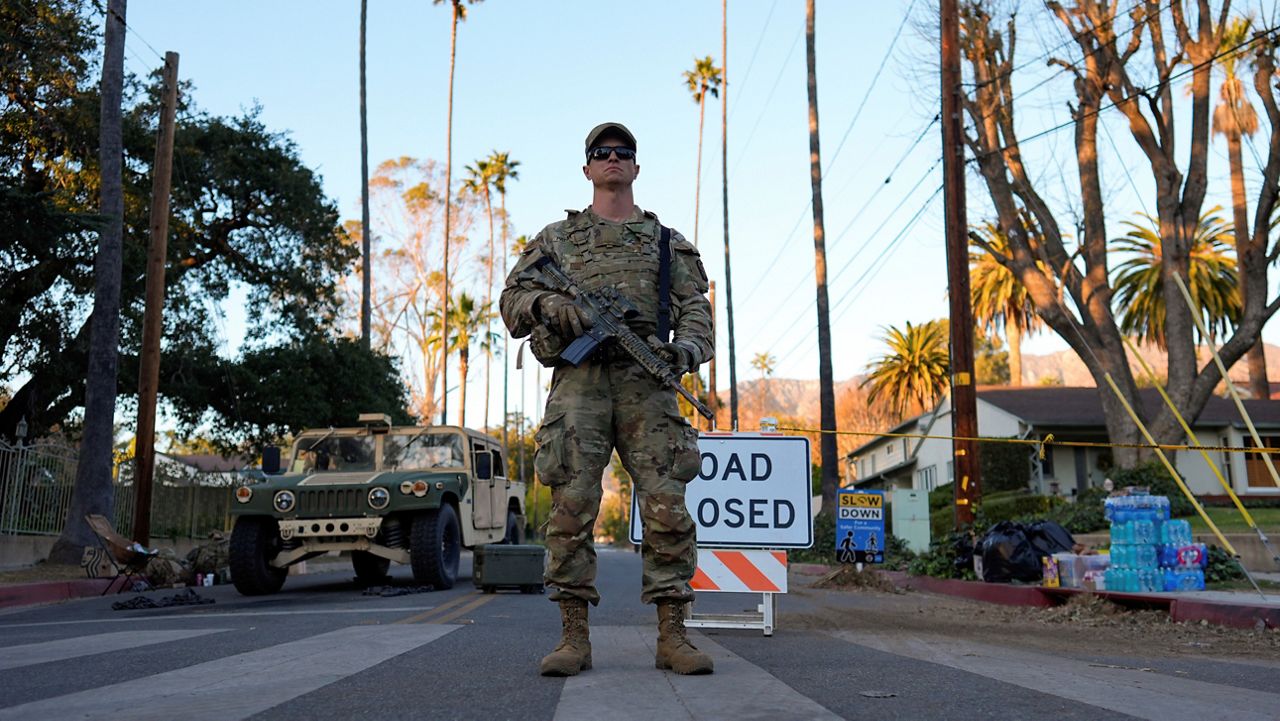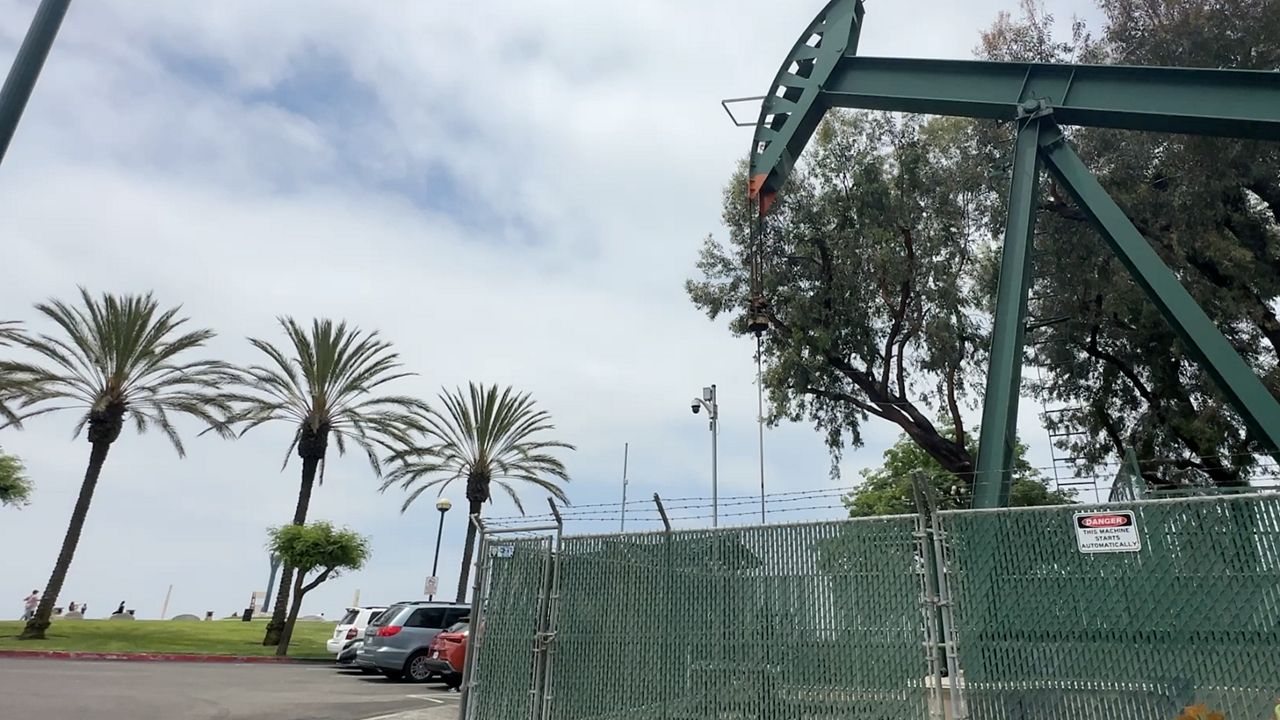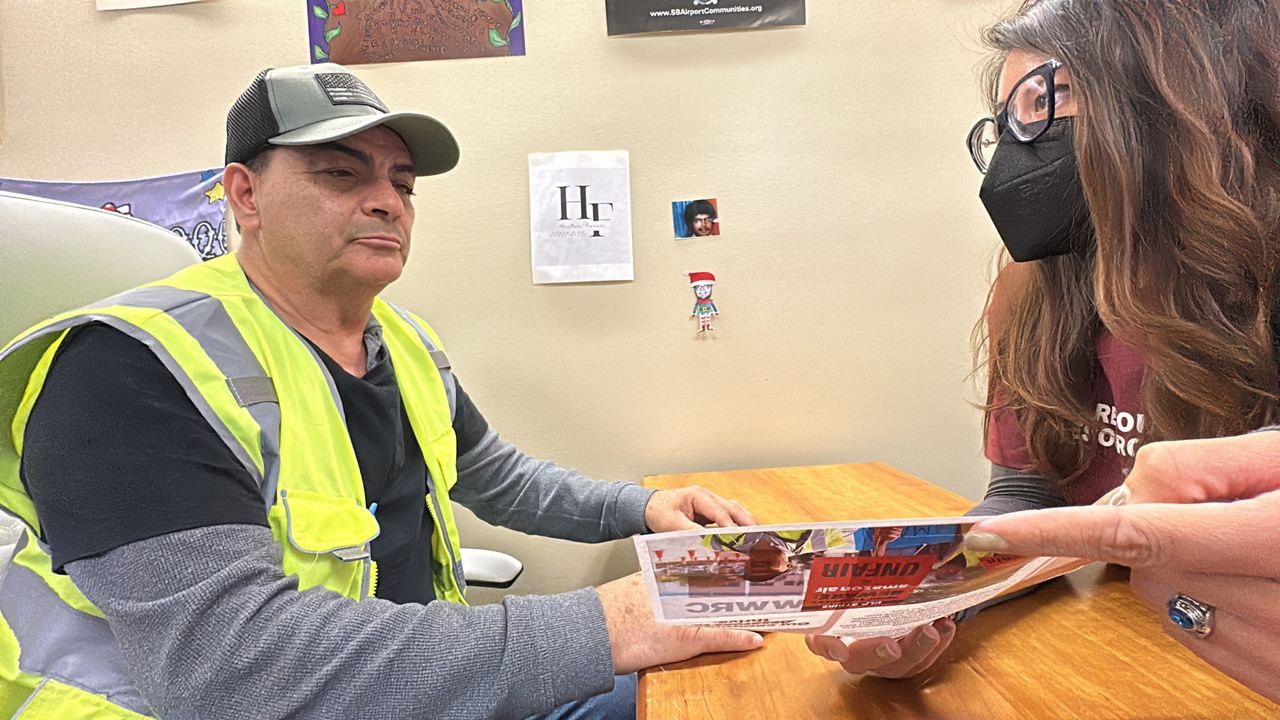LOS ANGELES — Around 3.6 billion people are living in areas highly vulnerable to climate change according to the World Health Organization, but not all are affected in the same ways.
The LA County Public Health Department says low-income communities are most affected by heat islands, which is when cities experience significantly higher artificial temperatures than rural areas in part because of green spaces replaced by concrete.
However, it’s not just geography and income. A panel of experts hosted by UC Irvine and the Latino Policy and Politics Institute of UCLA came together to discuss how immigration status also plays a role in how hard communities are hit by climate change.
“The most vulnerable in our community really are the undocumented migrant workers, because they have to experience working in hazardous conditions in one of the sectors that has the least protections for its workers,” said Silvia Gonzalez, Director of Research at the Latino Policy and Politics Institute at UCLA.
Often, the jobs many migrants work are at the mercy of extreme temperatures, said panelist Max Bell Alpert, executive director of North Bay Jobs with Justice. He says it’s important to note many are left choosing between braving the weather or taking home a paycheck.
“2020 alone was a really bad fire year for us in Sonoma County. Winery owners received $63 million in crop insurance, while the farm workers lost out on tremendous amount of income where many of them were not even eligible to get any kind of state support because of their documentation status. We really see that everyone has a responsibility here,” said Alpert.
He says although we can’t control mother nature, we can be better prepared to provide resources in times of disaster recovery and that includes language justice.
“In 2017 in our first wildfire, many of the announcements and information were not even done in Spanish. But even as that got better, the reality is, many workers are actually coming from indigenous communities where their first and preferred language is Mixteco or Zapotec and so it’s really fighting to make sure that people have that sense of safety,” he said.
It’s why Gonzalez says they are making sure the research now includes the lived experience of these community members, which she hopes will prompt a more inclusive policy.
“When you don’t have the infrastructure, the policy, the mechanisms to really answer in a time of disaster in a way that’s culturally relevant.. that is when you see the importance of having policies and processes in place that actually reach our community,” said Gonzalez.











